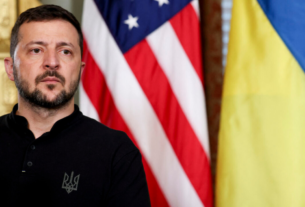Europe is struggling to find a common position on how to handle Ukraine’s future in the wake of the ongoing war with Russia. Tensions have been rising within the European Union (EU) as member countries disagree on the level of support Ukraine should receive. While some nations advocate for stronger military aid and tougher sanctions against Russia, others are more hesitant, fearing economic fallout and potential instability.
“The situation in Ukraine demands a clear strategy from Europe,” said EU foreign policy chief Josep Borrell. “If we cannot agree, we risk weakening Ukraine’s position.” Ukraine’s ability to recover and build a stable future depends heavily on the EU’s support.
The European Union has historically prided itself on unity, but the current crisis is putting that cohesion to the test. As Russia continues its aggressive actions in Ukraine, countries within the EU are divided over the best course of action. For instance, while some member states argue for more substantial military aid to help Ukraine defend itself, others worry that such support could escalate the conflict further.
Germany and France, two of the EU’s largest and most influential countries, have been more cautious in their approach. Both countries have stressed the importance of diplomatic solutions, urging dialogue between Ukraine and Russia. They argue that continuing to push for military aid could worsen the situation and make it harder to negotiate a peaceful resolution. Chancellor Olaf Scholz of Germany has repeatedly called for restraint, focusing on providing humanitarian aid and economic sanctions rather than increasing military involvement.
“We must remember that peace is the ultimate goal,” Scholz said in a recent interview. “A war without end will only cause more suffering.” France’s President Emmanuel Macron has echoed this sentiment, advocating for strategic diplomacy and negotiations as the best long-term solution to the conflict. Their stance is rooted in a belief that pushing Ukraine to confront Russia militarily could lead to unnecessary escalation, drawing in more nations and potentially risking a broader war.
On the other hand, countries like Poland and the Baltic states are more assertive in their calls for stronger military support. They believe that a stronger stance against Russia is necessary to bring the war to a close sooner. Poland, in particular, has urged the EU to send more weapons and defensive systems to Ukraine. “A strong Ukraine is a strong Europe,” said Polish President Andrzej Duda. “If we do not act now, we risk the future stability of the entire continent.”
The inability to come to a unified position is also reflected in the EU’s broader foreign policy. As each country looks out for its own interests, the EU’s influence in the global arena is weakening. The delay in providing consistent and coordinated support to Ukraine has given Russia an opportunity to deepen its influence in some parts of Europe. Without clear leadership from the EU, other global powers like the United States and China are stepping into the vacuum, further complicating the situation.
Despite these internal divisions, there is still a shared recognition among most EU members that Ukraine’s future cannot be ignored. The EU continues to provide economic and humanitarian aid, but the question remains whether this is enough. Experts warn that without more military support, Ukraine’s ability to defend itself and rebuild will be severely limited. The longer Europe takes to align on a strategy, the harder it may become to offer meaningful assistance.
Ultimately, the EU must find a way to bridge its internal divisions and present a united front to ensure Ukraine’s survival and long-term recovery. The ongoing war is not just a threat to Ukraine but to Europe’s own stability and security. If the EU fails to agree on a clear, collective response, it risks not only weakening Ukraine but also diminishing its own standing on the world stage.




